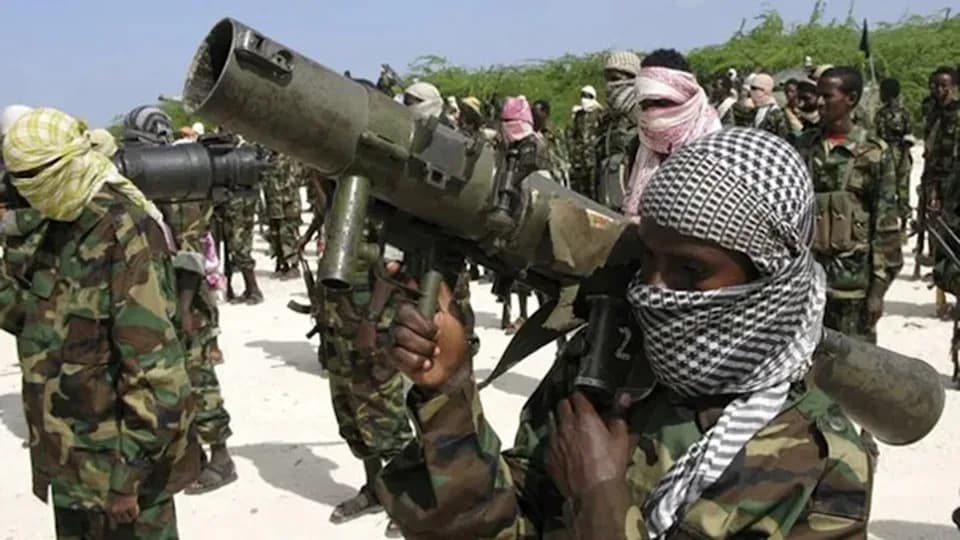Al‑Qaeda‑linked JNIM militants are tightening a siege around Bamako. By ambushing fuel convoys, imposing roadblocks and attacking infrastructure, the group has triggered fuel shortages, school closures and travel warnings from Western governments. Analysts say JNIM has shifted to economic warfare and improved coordination, raising the risk of wider destabilization across the Sahel, especially in Burkina Faso and neighbouring states.
Al‑Qaeda‑linked JNIM Tightens Siege on Bamako — Fuel Blockades and Ambushes Threaten Mali and the Wider Sahel

Al‑Qaeda‑linked JNIM tightens grip around Mali’s capital
Overview: A well-armed jihadist coalition affiliated with al‑Qaeda, Jama’at Nusrat al‑Islam wal‑Muslimin (JNIM), is increasingly choking off Bamako, Mali’s capital, by cutting supply routes, ambushing fuel convoys and mounting attacks on security forces. The campaign has deepened shortages in the city, prompted travel warnings from Western governments and raised alarm among regional analysts about wider contagion across the Sahel.
Supply lines under attack
Fuel supplies in Bamako have dwindled after militants began targeting tanker convoys that supply the capital, including trucks travelling from Côte d’Ivoire and Senegal. Recent footage from the city shows long queues at petrol stations and reports of households and businesses facing shortages. Local outlets say some residents accuse police of hoarding or mismanaging remaining fuel stocks. Schools and higher‑education institutions have temporarily closed in affected areas.
Escalating tactics and economic pressure
Over the past two months JNIM has intensified tactics described by analysts as "economic warfare": roadblocks, extortion, fuel blockades and attacks on infrastructure and artisanal mining sites. In mid‑September the militants attacked a convoy of more than 100 fuel trucks, setting fire to about half of them, according to Armed Conflict Location & Event Data (ACLED).
"JNIM has diversified its tactics," terrorism analyst Daniele Garofalo told CNN, citing the group's increased use of blockades, taxation and strikes on economic targets to undermine the junta’s control.
Military response and limitations
Malian forces, aided by Russian contractors — initially under the Wagner Group label and later organized by Moscow as the so‑called Africa Corps — have increased patrols and conducted helicopter strikes, claiming dozens of militant casualties. Yet these measures have not stopped the attacks, which continue to isolate garrisons and deepen supply disruptions. JNIM has also claimed large weapons capture and shown an ability to employ drones, according to the Counter Extremism Project (CEP).
Human rights and political fallout
The presence of Russian forces and the junta’s security tactics have provoked public anger. A Human Rights Watch report accused Malian authorities and their Russian partners of committing summary executions and enforced disappearances of Fulani men accused of collaborating with militants — a charge that further fuels local grievances.
Regional risk and strategy
JNIM has operated across the Sahel, notably in central and western Mali and neighboring Burkina Faso. Analysts say the group has improved coordination, conducting operations hundreds of kilometres apart and increasingly integrating into illicit cross‑border economies, exploiting fuel and arms smuggling routes in the tri‑border area between Côte d’Ivoire, Burkina Faso and Ghana.
Edmund Fitton‑Brown, a former UN sanctions monitor, warned that Burkina Faso is particularly vulnerable and that instability could spread to other states, including northwest Nigeria and Côte d’Ivoire. Many analysts also point to the political fragility of the junta led by Assimi Goïta, suggesting another coup or regime collapse could create further openings for militant expansion.
JNIM’s objectives and outlook
So far, JNIM appears focused on strangling Bamako economically and undermining the junta’s local authority rather than mounting a direct, full‑scale assault on the capital. By disrupting supplies, targeting secondary centres and shaping local opinion, the group is applying sustained pressure that could erode state control. The Counter Extremism Project warns Mali could risk becoming the first country governed by an al‑Qaeda‑aligned force if trends continue.
What this means: The situation is fluid. Western governments have urged their citizens to leave Bamako, citing unpredictable security conditions, while regional leaders and international observers watch for further spillover across the Sahel. A prolonged campaign of economic disruption combined with political instability could deepen humanitarian and security crises in the region.
Help us improve.




























